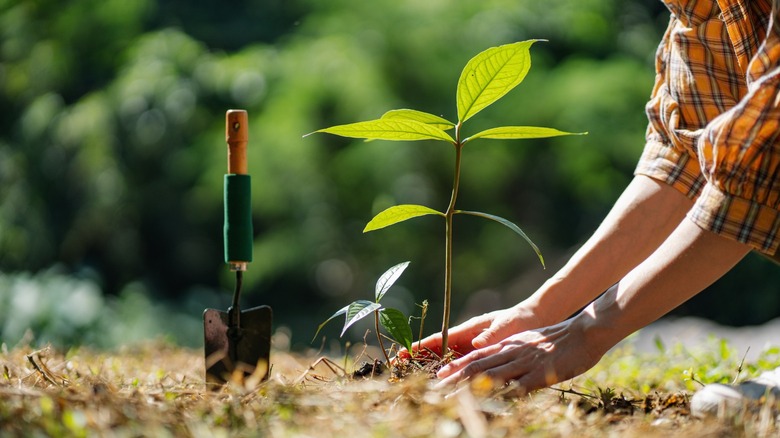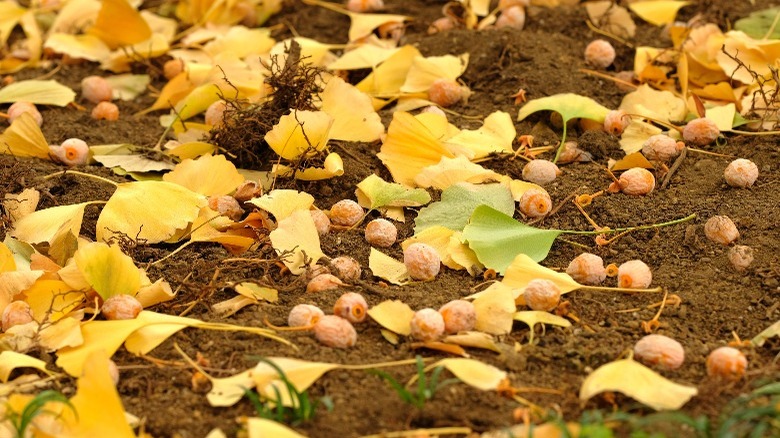The Popular Type Of Tree That You Should Select Based On Gender
As you're walking one morning, you smell a strange, unpleasant perfume in the air. Nearby, you only see a beautiful tree with yellow leaves and round fruit below in piles. The culprit is the maidenhair tree (Ginkgo biloba), a notorious tree known as a beautiful plant that can cause an awful smell in your yard. People around the world love the stunning, fanlike leaves of this unique and ancient tree, which has fossils going back 270 million years. However, ginkgoes are an example of a tree that is either fully male or female, with a bizarre smell attached to one gender.
Every fall, the gender of a maidenhair tree reveals itself. Male trees remain innocuous and will not disturb your peace. However, the female ginkgo tree is characterized by smelly seeds. Many folks like to select male trees to plant on their property to avoid the odor, which some compare to rancid butter.
Once female ginkgo trees reach maturity after about 20 years, they begin growing a seed with exposed flesh. These naked seeds fall from the tree in large quantities. As they lay on the ground, they ripen and eventually rot due to butyric acid in the fleshy outer layer. Unlucky passersby may smell the putrid seeds long before they see the tree. And if you trod on these fleshy seeds, you will be rewarded with a squishy, odorous mess underfoot, making it one of the plants you shouldn't grow right next to your house. Thankfully, there are ways to determine the gender of a smelly maidenhair tree.
Revealing the gender of your Ginkgo tree
Determining the gender of a tree might sound difficult, but in this case, it is an essential step when planting trees. To identify between a male and female ginkgo, look at its parts. A male tree has pollen cones with short, slim, cylindrical clusters. Alongside these pollen cones are long, distinctive stamens. The wind takes the pollen from male to female trees to pollinate the female tree's green ovules.
Of course, it's more challenging to pinpoint the gender of an immature ginkgo seedling. While most nurseries will not even sell female trees, offering popular fruitless male varieties like 'Autumn Gold' and the dwarf ginkgo cultivar, 'Jade Butterfly,' you might still be unable to avoid them. You could purchase a property with a mature maidenhair tree already there. In this case, you don't have many options to manage the strange-smelling seeds of this beautiful tree. Raking the seeds is not recommended, as they become soft once they fall. There are sprays that might limit the production of seeds on female trees, but these have questionable results. In Asia, the tree's seed kernels are used in cooking, while the leaves are used to make medicinal extracts. If you already have a female ginkgo tree, the best thing to do might be to embrace it in all its smelly glory.

